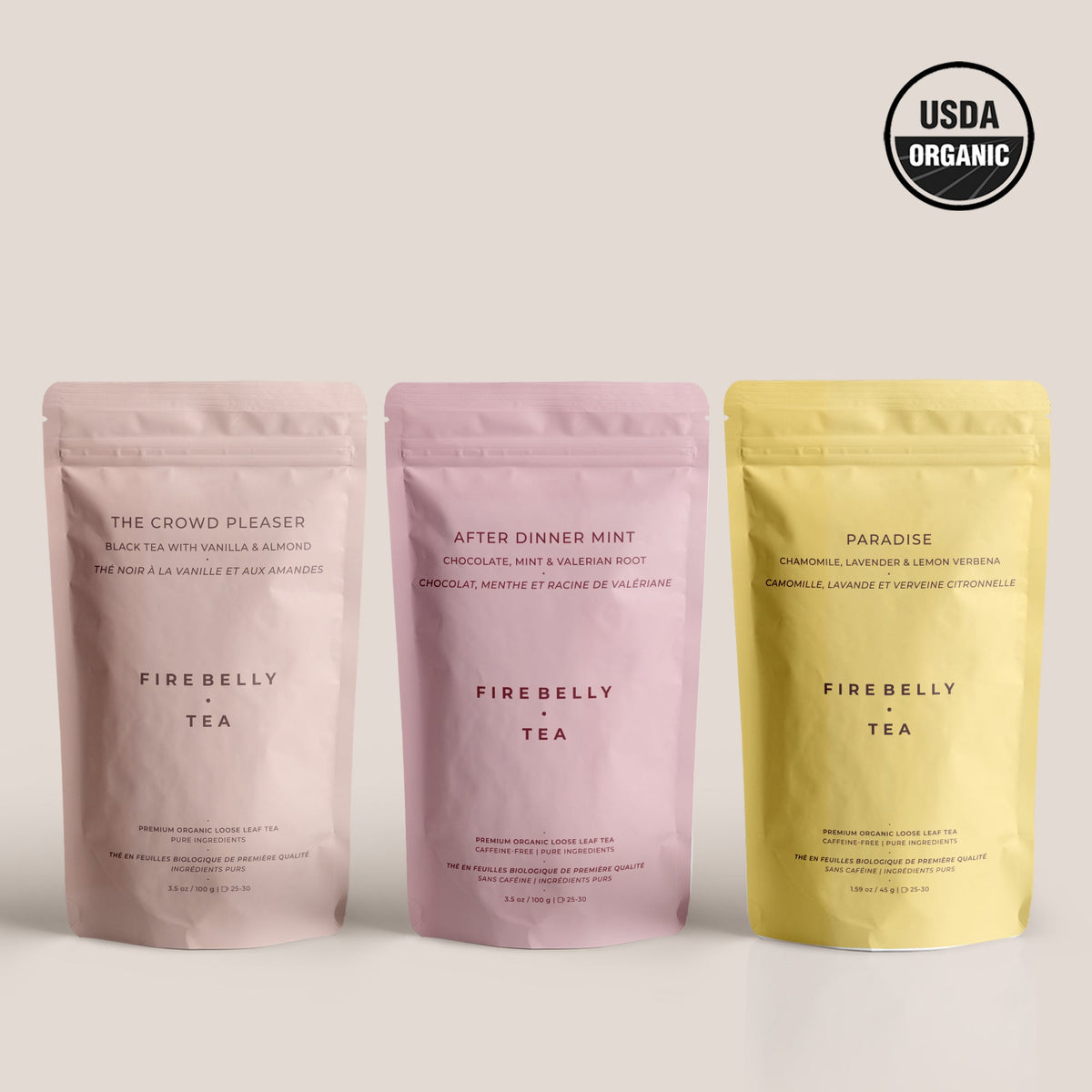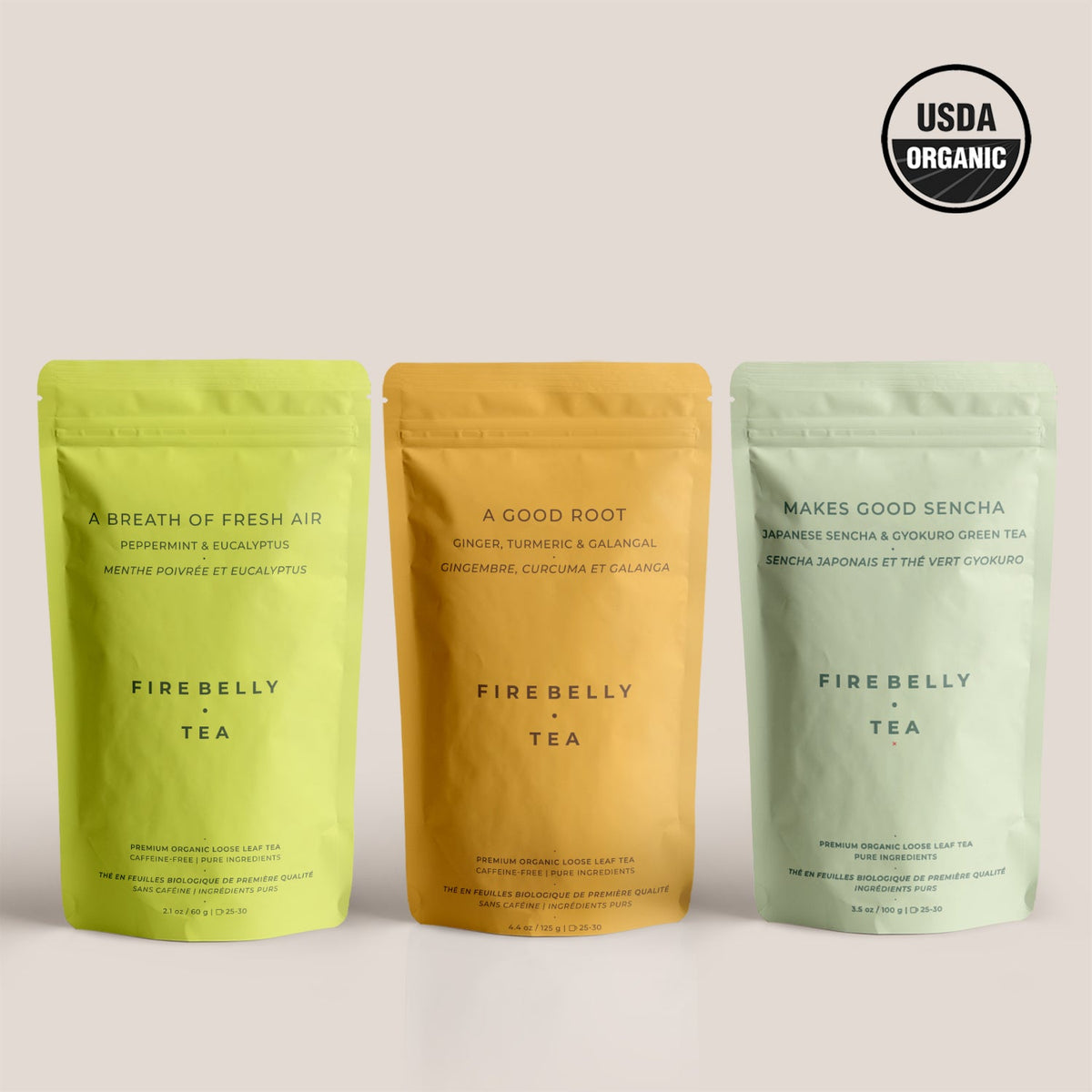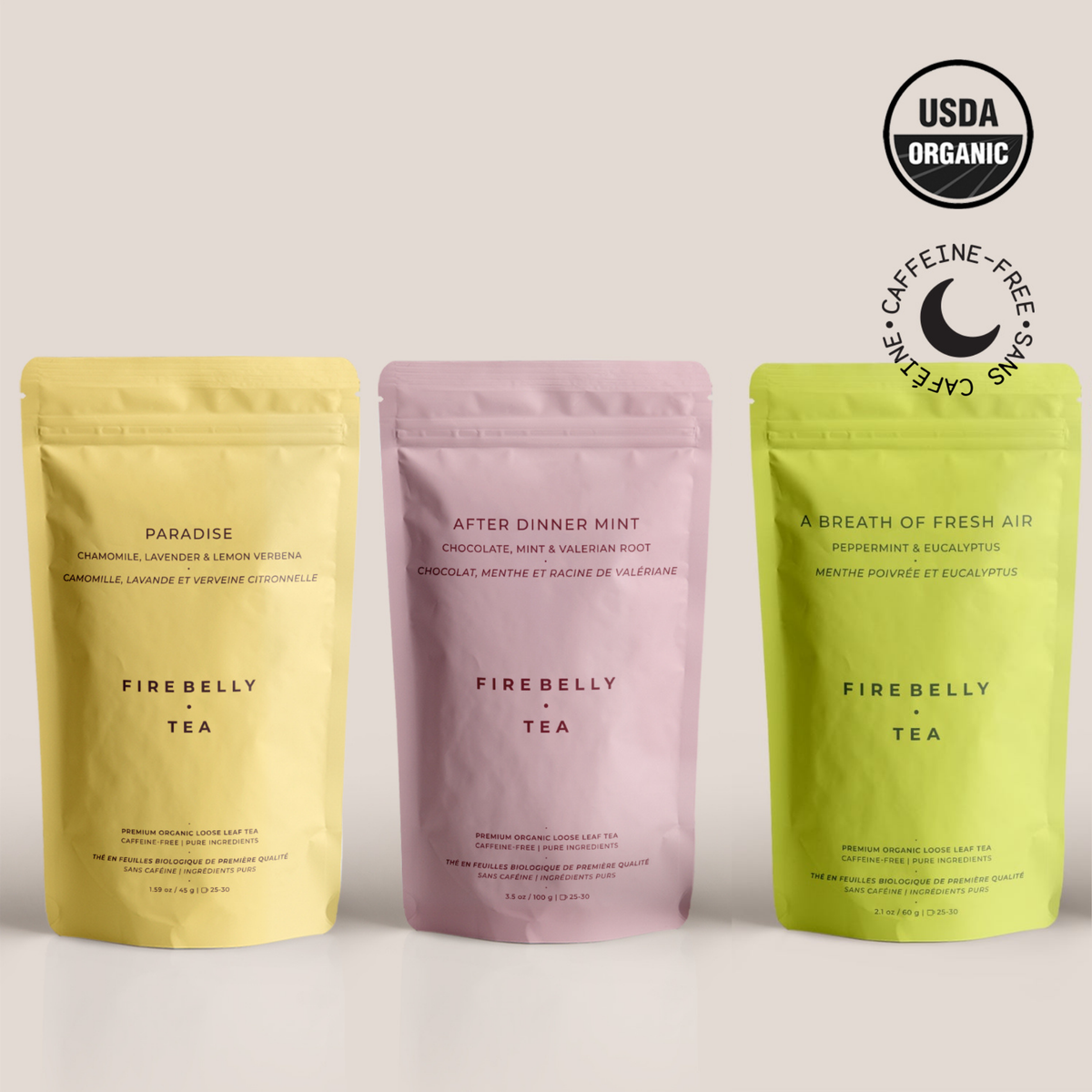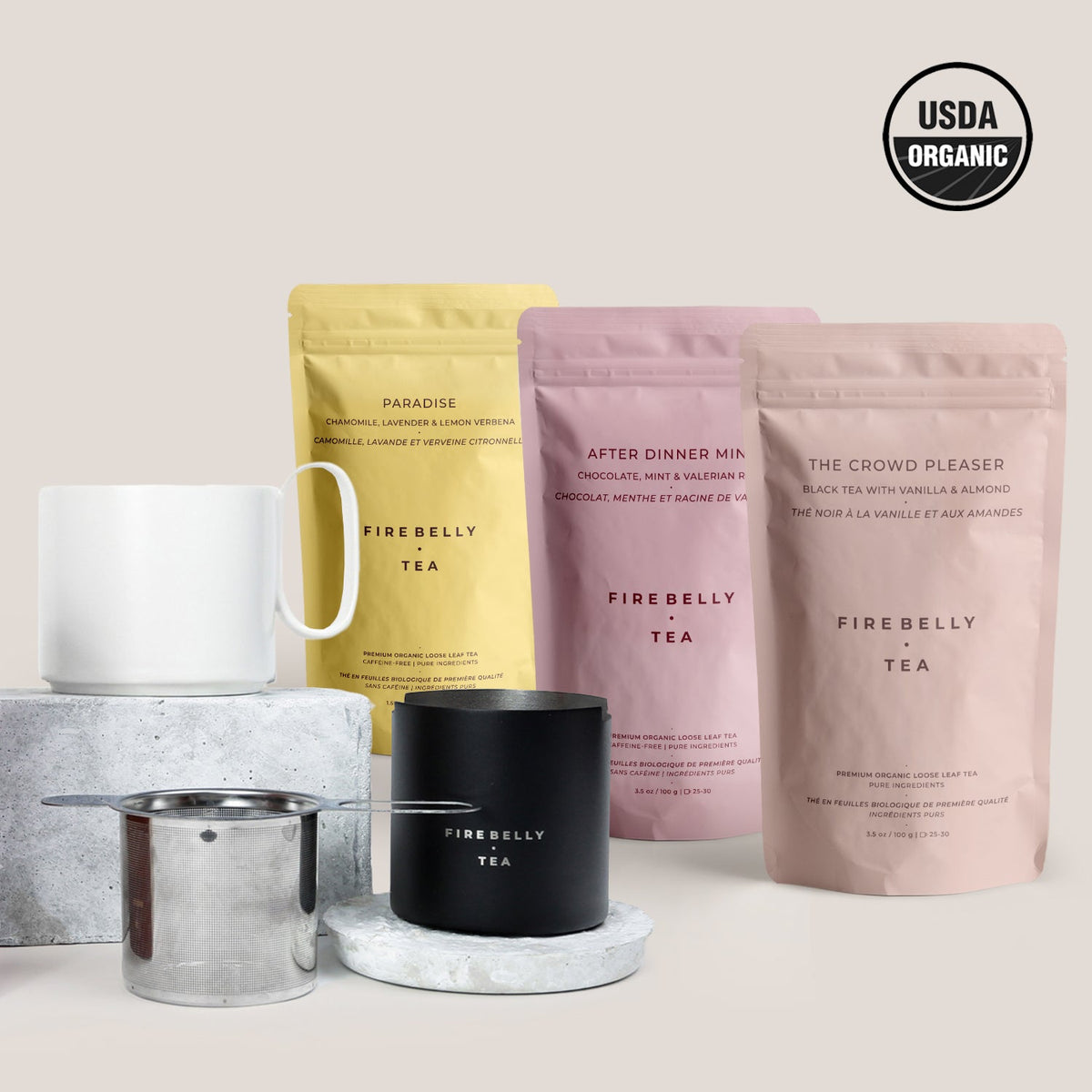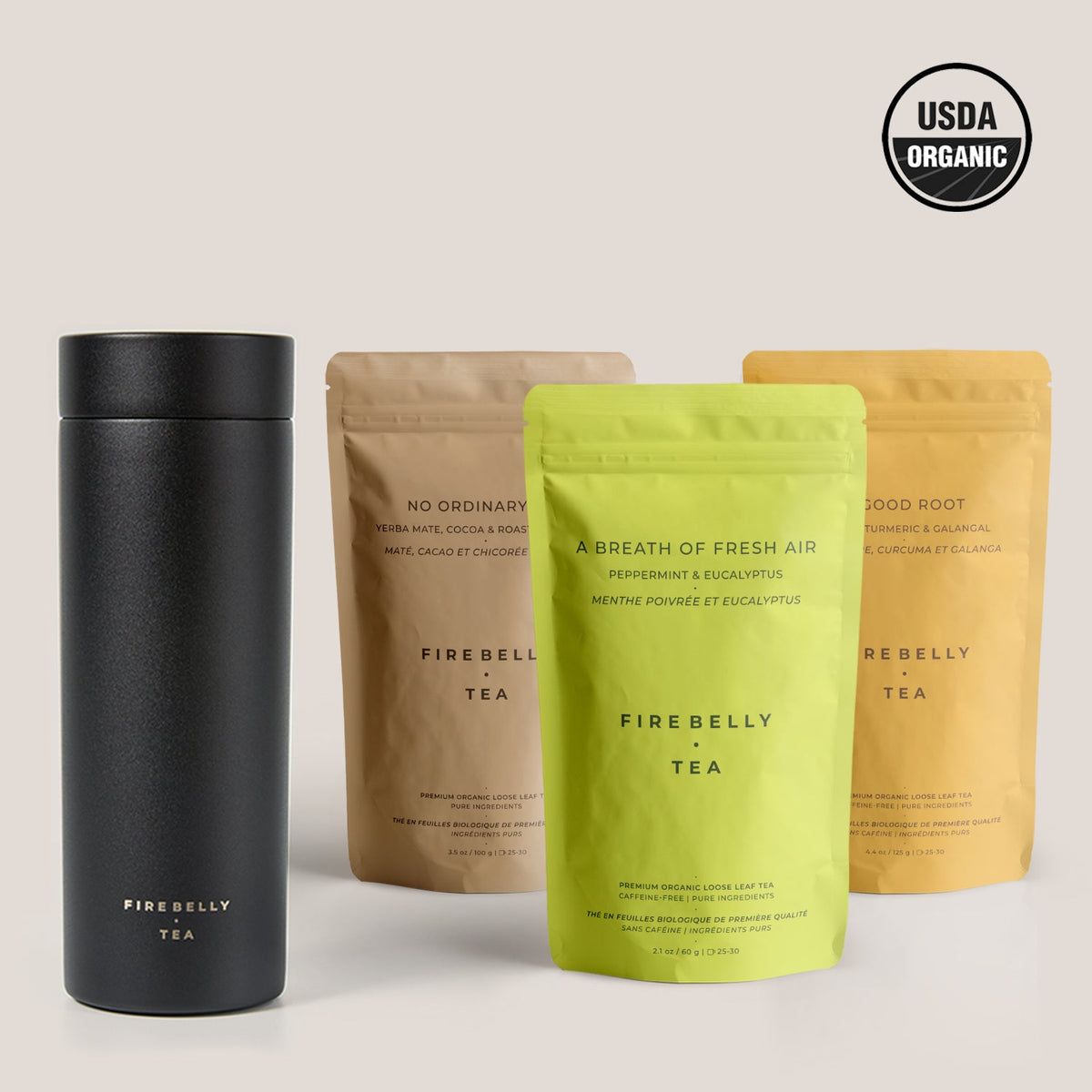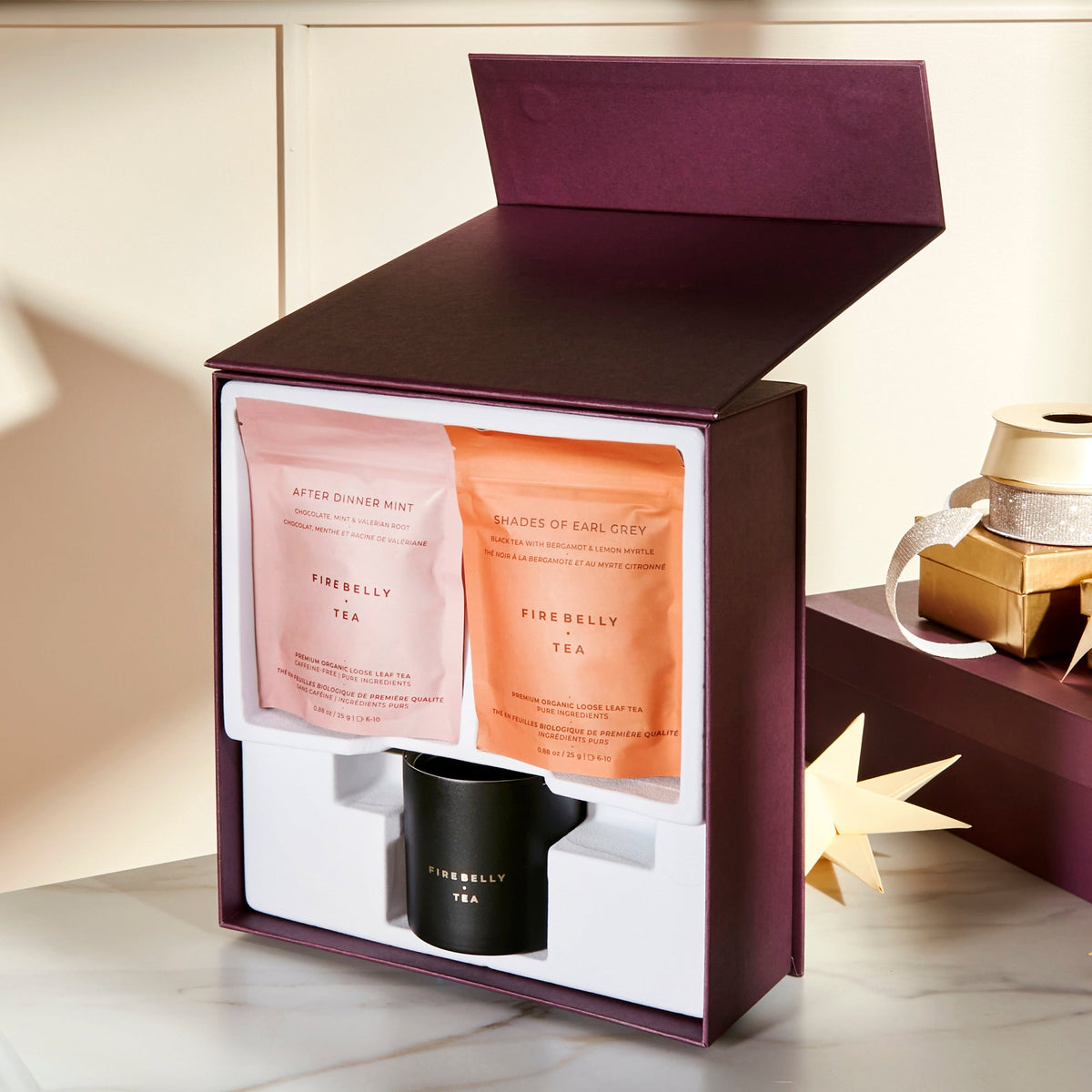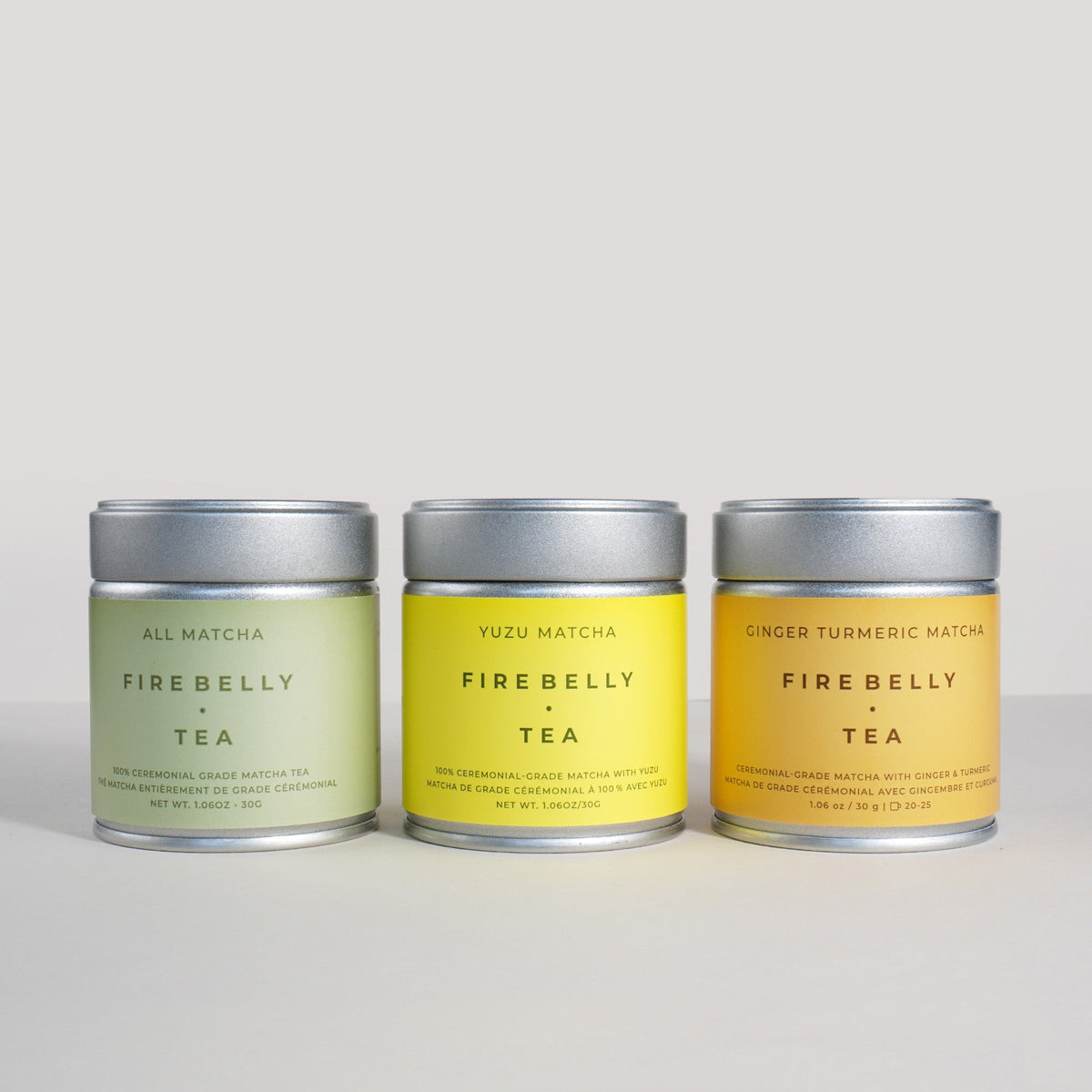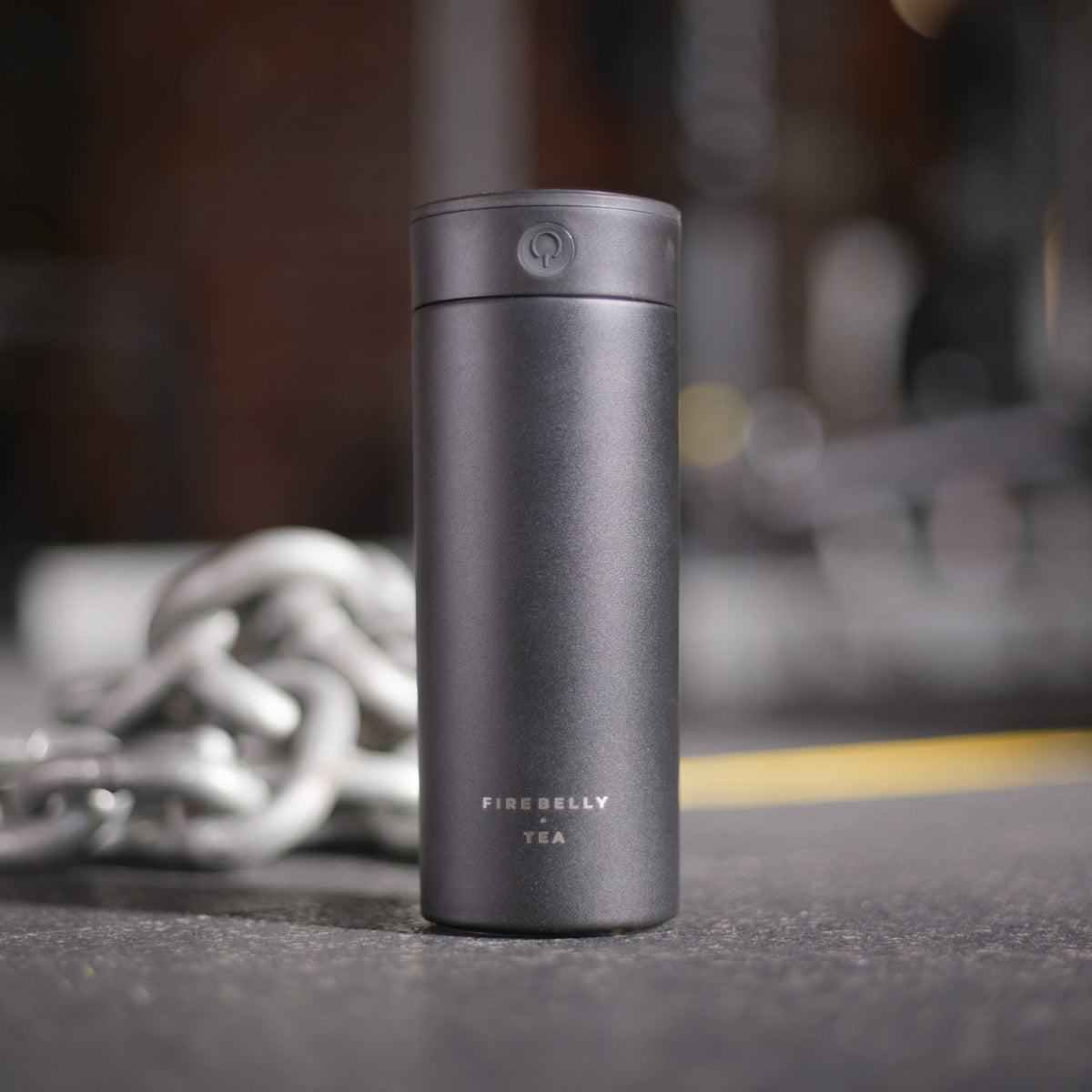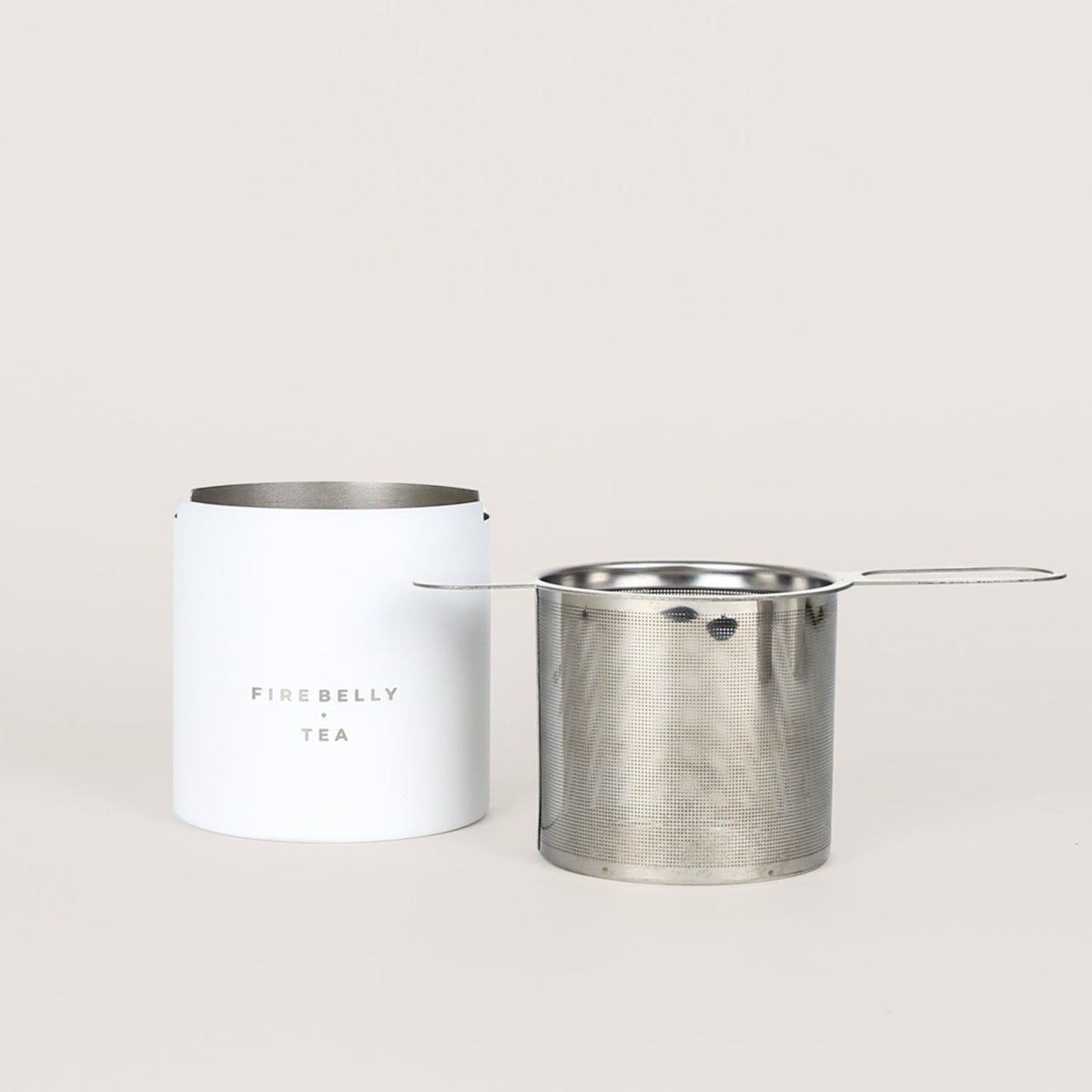If you're an avid tea drinker, you've probably heard of hibiscus and rooibos tea. You may even have tried them. Both have unique flavors; they're caffeine-free and have incredible health benefits. Combine the two and add a few other healthy and delicious ingredients, and you have Sweet Hibiscus Rooibos tea, yet another wonderful Firebelly Tea blend.
What makes this herbal tea so great? We're going to tell you all about it in this guide. We'll do a deep dive into the origins of rooibos and hibiscus tea, followed by detailed information about the health benefits of these herbal teas and the other ingredients in this blend.
The Origins of Hibiscus Tea
Hibiscus tea is a type of herbal tea made from the dried flowers of the hibiscus plant, which is native to tropical regions worldwide, including South America, Africa, Asia, and the Caribbean.
The exact origins of making tea from hibiscus are unknown, as the plant has been used for medicinal and culinary purposes in various cultures for centuries. Ancient Egyptians used hibiscus to make a refreshing drink called "karkade," which is still popular in Egypt today. In West Africa, hibiscus tea is known as "bissap" and is a typical drink during Ramadan. In the Andes region, the hibiscus is known as "Flor de Jamaica" and is a common ingredient in health teas.
Hibiscus tea became popular in other parts of the world during the 19th century when it was introduced as a medicinal beverage in Europe. Today, hibiscus tea is enjoyed worldwide for its refreshing taste and health properties. You can drink it hot or cold, sweetened, or with other ingredients.
The Many Health Benefits of Hibiscus Tea
Hibiscus flowers are jam-packed with antioxidants and other nutrients. Here are some of this flower's many health claims:
Antioxidant properties
Hibiscus is rich in antioxidants, particularly anthocyanins, and flavonoids. These compounds can help to neutralize harmful free radicals in your body, reducing oxidative stress and inflammation and potentially lowering the risk of chronic diseases like heart disease and cancer.
Boosts the immune system
The antioxidant and anti-inflammatory properties of hibiscus will help boost your immune system, but that's not all. This wonderful flower also contains high levels of vitamin C, an essential nutrient crucial to immune function. Vitamin C helps stimulate the production and activity of immune cells, including white blood cells, which help fight off infections.
Supports heart health
Hibiscus can help lower high blood pressure and prevent vascular inflammation, both significant risk factors for heart disease. It may also help to lower LDL cholesterol levels (the "bad" cholesterol) and improve HDL cholesterol levels (the "good" cholesterol), which can promote heart health.
Helps manage weight
Hibiscus may have anti-obesity effects because it helps inhibit the production of amylase. This enzyme breaks down carbohydrates, which may help to reduce the absorption of sugars and starches and may help you to lose weight.
Supports liver health
Hibiscus has hepatoprotective properties. Hepatoprotective is a big word that simply means it can help protect the liver from damage caused by oxidative stress and inflammation, potentially improving liver health.
Kidney health
Hibiscus has mild diuretic properties, which can help promote healthy kidney function by increasing urine production and flushing out toxins, supporting urinary tract health.
Potential anti-cancer effects
Hibiscus contains polyphenols and other compounds that exhibit anti-cancer properties, including inhibiting the growth of cancer cells and reducing the spread of tumors in test-tube and animal studies. Although additional research is needed to understand the full extent of these effects that rooibos tea has on humans, there is much potential.
Reduces high blood sugar
Hibiscus contains compounds that may inhibit the digestion and absorption of carbohydrates in the digestive tract. It can help slow the glucose release into the bloodstream and reduce blood sugar spikes after meals.
Hibiscus may also help to increase insulin sensitivity. When this happens, the body uses insulin more effectively, combating insulin resistance and reducing blood sugar levels. Insulin is a hormone that's crucial in regulating blood sugar levels.
Rooibos Tea: Where It's From
Rooibos tea, also known as red bush tea, is a type of herbal tisane native to the Western Cape region of South Africa. The tea is made from the leaves and stems of the Aspalathus linearis plant, which grows in the fynbos biome of the region.
The Khoisan people of the Western Cape region have been using rooibos tea for centuries for its medicinal properties. It was in the 18th century that Dutch settlers in the region began cultivating the plant and trading it commercially in European countries.
Today, rooibos tea is a popular beverage worldwide, known for its mild, sweet taste and incredible health benefits. It is often enjoyed on its own or blended with other ingredients to create unique flavors.
Red rooibos tea vs. green rooibos tea
Although "rooibos" means "red bush," translated, the rooibos plant is not red. It has green leaves and tiny yellow flowers.
Both types of rooibos tea come from the rooibos plant, called Aspalathus linearis, and are popular caffeine-free alternatives to traditional tea. They have incredible health benefits, and both are delicious, whether you prepare them with boiling water as a hot tea or if you steep it and cool it as an iced tea.
But that's where the similarities end. The two teas differ in processing, taste, nutritional value, and uses. The red version is oxidized during processing, has a richer, earthier flavor, and is a popular choice for flavored teas. It has a reddish-brown hue and earthy flavor.
The green one is not oxidized, so it retains its green color and has a more delicate, grassy taste, similar to green tea. This variation is often used in blends with other herbs and teas.
Why Drinking Rooibos Tea Good For You
Whether you prefer green or red rooibos tea, the health benefits of rooibos tea are many, including:
Antioxidant properties
Rooibos tea is a rich source of powerful antioxidants like aspalathin and nothofagin. These antioxidants can help to reduce oxidative stress and inflammation in the body, potentially lowering your risk of chronic diseases, including cancer and heart disease. Research has revealed that certain antioxidants in rooibos tea may help prevent tumor growth.
Promotes heart health
Rooibos tea contains natural ACE inhibitors, which help prevent blood vessels from contracting resulting in blood pressure rising - a significant risk factor for heart disease. This fabulous red tea also contains aspalathin, a unique polyphenol that may help reduce cholesterol levels by increasing the activity of an enzyme involved in the breakdown of cholesterol, yet another risk factor for cardiovascular disease.
Additionally, rooibos tea contains quercetin, a flavonoid that improves blood vessel function and reduces inflammation. With all these heart-friendly compounds, drinking rooibos tea daily may help prevent cardiovascular disease.
Aids in digestion
If you struggle with digestive problems, rooibos tea is an excellent supplement. It has anti-inflammatory properties that can help reduce inflammation in the digestive tract, potentially improving digestion and relieving symptoms of digestive issues such as diarrhea and colic. Rooibos tea may also alleviate stomach cramps because it contains anti-spasmodic compounds.
Supports bone health
Rooibos tea contains high levels of minerals like calcium, manganese, and fluoride, which can help to support strong and healthy bones and teeth. Calcium is essential for building strong bones, while manganese plays a role in bone formation and helps maintain bone density. Fluoride strengthens bones and helps prevent the risk of fractures.
Healthy skin
Rooibos tea contains alpha hydroxy acid, a common ingredient in high-quality skin treatments. This ingredient can help reduce the signs of aging as well as redness. It also promotes an even skin tone. The minerals in rooibos tea can help lock in moisture and keep your skin hydrated and healthy.
Rooibos may help protect your skin from the sun. Some studies have suggested that rooibos tea may have natural sun protection properties due to polyphenols such as aspalathin and quercetin. However, more research is needed to understand the effects of rooibos tea on the skin fully.
Potential anti-cancer effects
Rooibos tea contains polyphenols and other antioxidants that may help to reduce the risk of certain types of cancer by preventing oxidative damage to cells and DNA. A cup of rooibos tea a day can help keep the doctor away!
Important note: Although rooibos tea has many beneficial effects and may help to reduce high blood pressure, assist the digestive system and even help kill cancer cells, it's not advisable to drink rooibos tea as a cure for health problems. It's essential to speak to your healthcare provider about your health problems.
Other Ingredients in Sweet Hibiscus Rooibos Tea
The delicious and caffeine-free Sweet Hibiscus Rooibos tea blend not only contains the incredible benefits of rooibos tea and hibiscus, but it's also packed with flavor and health properties of apple pieces, sweet blackberry leaves, and licorice root. Here are some of their benefits:
Apple
Apples are a rich source of fiber, antioxidants, and phytonutrients that may help reduce the risk of chronic diseases, including heart disease, diabetes, and cancer. They can also improve digestion, aid in weight loss, and promote overall health by boosting the immune system.
Apple tastes crisp and can be sweet, tart, or both.
Carob
Carob is a low-fat, high-fiber, and naturally caffeine-free alternative to chocolate, rich in antioxidants, minerals, and vitamins. It may help improve digestion, lower cholesterol levels, and reduce the risk of certain cancers. It is also an excellent calcium source, which is essential for bone health.
Carob tastes similar to chocolate. It's slightly milder and naturally sweet.
Sweet blackberry leaves
Sweet blackberry leaves have been traditionally used in herbal medicine for their potential health benefits. They have anti-inflammatory properties, promote healthy digestion, relieve sore throat and cough, and boost the immune system. Additionally, they are a good source of antioxidants.
Sweet blackberry leaves taste earthy, smooth, and a little fruity.
Licorice root
Licorice root is a centuries-old traditional medicine known for its incredible health benefits. Used in moderation, it may help soothe digestive issues and relieve sore throat and cough. It also contains antioxidants that may help protect against cellular damage and certain chronic diseases.
Licorice root has a spicy, bittersweet taste with undertones of anise and camphor.
A Herbal Tea Blend Like no Other
This delicious beverage is perfect for those who love green and black tea but want to reduce their caffeine intake. The rooibos tea's sweet, nutty flavor perfectly balances the hibiscus's tart, floral flavor. The apple pieces in this blend give it a crisp undertone, and the carob, sweet blackberry leaves, and licorice root bring it all together with chocolatey, fruity, spicy, and woody flavors.
A cup (or three!) of Sweet Hibiscus Rooibos tea daily can help you to improve your overall health, but only if you include it as part of a healthy lifestyle with a balanced diet, regular exercise, and enough sleep. Order this tasty red tea today.
